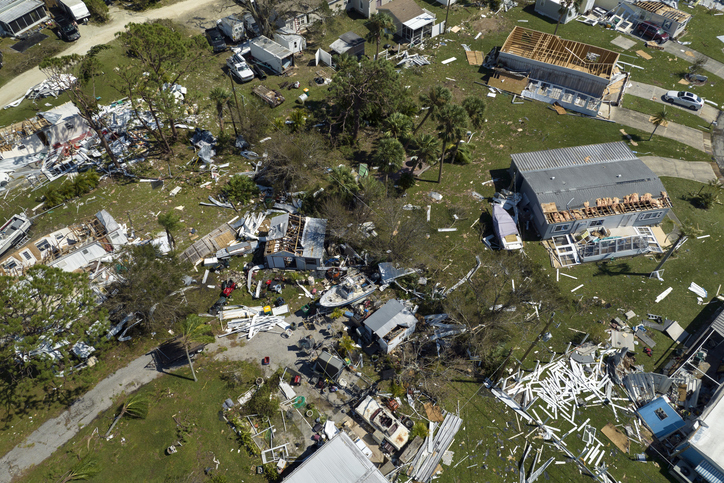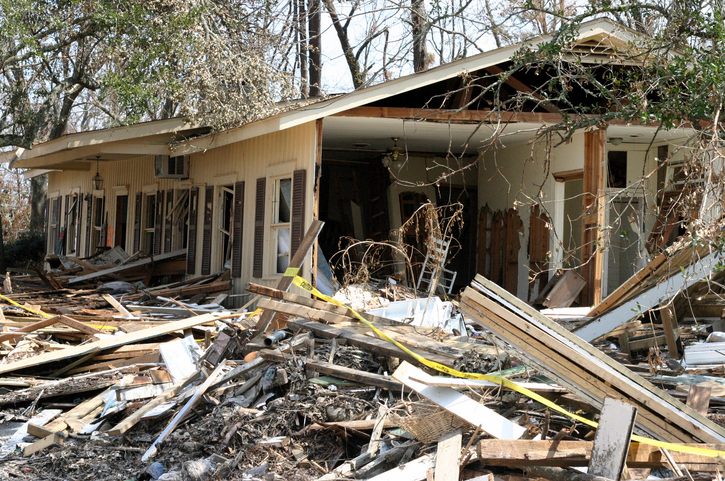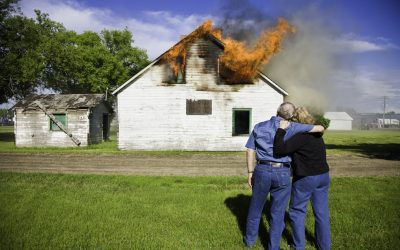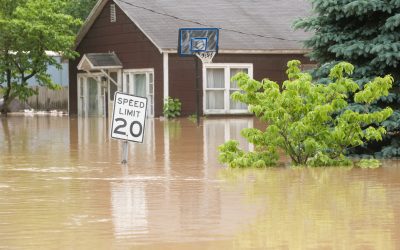What Type of Damages Do Hurricane Cause? Smart Coverage Tips
Florida residents are no strangers to hurricanes. When storm season rolls in, homes, businesses, and entire communities face the threat of widespread destruction. But what type of damage do hurricanes cause, and more importantly, how can you make sure you’re financially protected? This guide explores the most common forms of hurricane-related damage and shows you how the right insurance policies can shield you from devastating losses. Whether you’re a homeowner preparing for storm season or recovering after landfall, understanding your coverage is the first step to rebuilding safely and confidently.
What Type of Damage Do Hurricanes Cause?
When hurricanes hit, the damage isn’t limited to high winds. A single storm can create a chain reaction of destruction affecting structures, utilities, and daily life.
Here are the primary types of damage hurricanes cause:
1. Wind Damage
High-velocity winds, often exceeding 100 mph, can:
- Tear off roofs and siding
- Snap power lines
- Uproot trees
- Break windows and garage doors
Example: Hurricane Ian (2022) brought wind speeds up to 150 mph in parts of Florida, causing severe structural collapse in residential areas.
2. Flooding and Storm Surge
Hurricane storm surge is often the most lethal and expensive form of damage.
- Saltwater floods interiors
- Damages appliances and drywall
- Causes long-term mold issues
According to FEMA, just one inch of floodwater can cause $25,000 in damage.
3. Roof and Structural Compromise
Wind-driven rain and debris impact roofs and walls.
- Water penetrates under shingles
- Weakens insulation and wooden beams
- Cracks foundations over time.
4. Power Outages and Utility Loss
Destruction of electric grids and water lines can lead to:
- Food spoilage
- Lack of air conditioning in extreme heat
- Health risks for elderly and medically dependent individuals.
 What Type of Damages Can a Hurricane Cause to Homes and Businesses?
What Type of Damages Can a Hurricane Cause to Homes and Businesses?
Hurricanes wreak havoc on both residential and commercial properties, often resulting in prolonged disruptions.
Residential Property Damage
- Roof, wall, and garage door failure
- Interior flooding from broken windows
- Loss of personal belongings, electronics, and furniture
- Vehicle damage due to falling debris
Business and Commercial Property Damage
- Inventory loss
- Equipment malfunction
- Water damage to infrastructure
- Loss of income due to downtime
According to the Insurance Information Institute (III), over 30% of small businesses never reopen after a natural disaster.
Is Hurricane Damage Covered by Insurance?
Understanding your insurance policy is crucial—especially in hurricane-prone areas like Florida.
Standard Homeowners Insurance
- Wind Damage: Usually covered
- Flood Damage: Not covered. Requires separate flood insurance
- Roof Leaks: Covered if caused by wind
- Debris Removal: Often included
Flood Insurance (Through FEMA’s National Flood Insurance Program – NFIP)
- Covers water damage from storm surge, heavy rain
- Required if you live in a flood zone
- Does not cover contents unless added separately
Helpful Link: FloodSmart.gov – Official NFIP Portal
How to Ensure You’re Covered Before Hurricane Season
Proactive preparation is the best defense. Here’s how to safeguard your property and finances:
1. Review Your Insurance Policy
- Confirm wind and flood coverage
- Add loss of use coverage (for hotel stays, meals)
- Photograph your home and inventory items
2. Purchase Flood Insurance
- Available through FEMA or private insurers
- Takes 30 days to activate, so don’t delay
3. Install Wind Mitigation Features
- Hurricane straps, impact windows, reinforced doors
- May lower insurance premiums under Florida law
Tip: Submit a wind mitigation inspection to your insurer to reduce premiums by up to 45%.
Does Insurance Pay for Hurricane Damage in Florida?
Yes, but coverage depends on the source of damage and your specific policy.
| Damage Type | Covered by Homeowners Insurance? | Requires Flood Insurance? |
|---|---|---|
| Wind Damage | ✅ Yes | 🚫 No |
| Storm Surge/Flood | 🚫 No | ✅ Yes |
| Debris Cleanup | ✅ Yes (sometimes limited) | 🚫 No |
| Mold from Water Damage | ⚠️ Limited (depends on cause) | ✅ Yes (if flood-related) |
Tax Implications – Is Hurricane Damage Tax Deductible?
Can You Deduct Hurricane Damage from Your Taxes?
In some cases, yes. The IRS allows deductions for casualty losses if the damage occurred in a federally declared disaster area.
- Must itemize deductions
- Deduct insurance reimbursements
- Loss must exceed 10% of adjusted gross income
Helpful Link: IRS Disaster Relief Info
Protect What Matters Most
Don’t wait until it’s too late. If you live in Florida, be prepared for hurricane damage. The preparation isn’t optional—it’s essential. Review your insurance policy today, ensure you’re covered for both wind and flood damage, and explore potential tax relief if you’ve already been affected.
Need help evaluating your coverage? Contact a licensed Florida insurance agent or visit Care Public Adjusters to get started.
FAQ – Common Questions About Hurricane Damage & Insurance
Q1: What type of damages can a hurricane cause to a house?
Wind, flooding, roof damage, interior water damage, and structural issues are common.
Frequently Asked Questions
Q1: What type of damages can a hurricane cause to a house?
Wind, flooding, roof damage, interior water damage, and structural issues are common.
Q2: Does insurance cover hurricane damage in Florida?
Yes, but only wind damage is covered under standard policies. Flood damage requires separate flood insurance.
Q3: Can you write off hurricane damage on your taxes?
If the damage occurred in a federally declared disaster zone and meets IRS criteria, you may qualify for deductions.
Q4: When a hurricane nears land, what causes the most damage?
Storm surge and flooding typically cause the most widespread and costly damage.
Q5: Who pays for hurricane damage if you don’t have insurance?
Without insurance, you’re personally responsible. Some disaster aid may be available through FEMA, but it’s limited and not guaranteed.

 What Type of Damages Can a Hurricane Cause to Homes and Businesses?
What Type of Damages Can a Hurricane Cause to Homes and Businesses?

